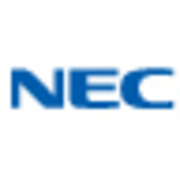Modular SAN offers scalable and flexible data storage solutions designed for growing enterprise environments. It adapts to changing demands, ensuring optimal data management and improved storage performance.
Modular SAN is built to support the dynamic data storage needs of enterprises. It provides a structured approach to increase storage capacity without overhauling the entire infrastructure, minimizing downtime and disruption. This approach makes it easier for IT departments to manage resources effectively, integrate new technologies, and improve overall system efficiency. As businesses evolve, Modular SAN can be customized to fit whatever unique demands arise, ensuring continuous alignment with business goals.
What are the key features of Modular SAN?In industries such as finance, healthcare, and media, Modular SAN solutions are implemented to support high-volume transactions, protect sensitive client data, and handle large-scale content storage, respectively. These industries benefit from the scalable, reliable nature, enabling them to maintain efficient operations and meet regulatory compliance easily.
For organizations looking to enhance their storage capabilities, Modular SAN provides a reliable and adaptable option. Its design supports both current and future data storage needs, allowing businesses to focus on growth and innovation without being held back by infrastructure limitations.
| Product | Market Share (%) |
|---|---|
| HPE MSA | 18.3% |
| NetApp FAS Series | 15.2% |
| IBM FlashSystem | 15.1% |
| Other | 51.4% |




























A NAS (network attached storage) is a single simple device that sends data via ethernet. NAS is very basic, extremely simple, and cost-effective. A NAS grants data storage access to other devices on the network and provides for an uncomplicated way for numerous users from different areas to access data. This is particularly beneficial when users are regularly sharing information back and forth on the same network. NAS basic structure makes it very easy for a non-technical person to manage all the network processes. NAS is a great fit for a home office or small business that requires a greater ability to share data with better integrity and be available 24/7. NAS is very good for sharing small files, but can become easily overloaded and stressed when sharing larger files, such as photos, audio, or video. When a NAS can no longer easily handle such heavy network traffic flow, many organizations make the decision to switch to SAN. SAN (storage area network) operates with a combination of several servers and can handle all those significantly higher traffic flows and increasingly heavier data loads much easier.
When you need high-performance, low-latency shared access, it is time to make the step up to SAN. SAN is the most highly recommended option for sharing large files safely to the greatest number of users without causing any performance issues. SAN is typically used by large corporations or enterprises and generally requires an administrative team or IT staff to manage. SAN is extremely desirable in today's work and even in some home environments where many users are collaborating and editing graphic, photo, video, and music files on a regular and consistent daily basis.
Instead of a single device, you get a combination of servers with high speed and low latency. SAN can also have fiber channel connections to consistently ensure the fastest possible speed, delivery, security, and overall performance. By using a fiber channel, data is rerouted around the TCP/IP packetization and reduces any latency concerns, resolving congestion issues with the network. SAN keeps data exchanges across servers continually running smoothly and quickly. Some configurations may also have a private separate ethernet network to keep those servers running even more smoothly and keep traffic away from the primary fiber channel network, resulting in an even greater overall performance. SAN is extraordinarily robust, agile, and extremely flexible and can handle the huge amounts of compute and data sharing needed in today's busy dynamic digital environment.
The speed of the NAS is primarily dependent on the local TCP/IP ethernet network (generally between 1GB and 10GB) and is deeply affected by the number of users, types of files they are sharing, and amount of storage they are using. NAS is consistently slower due to slow throughput caused by the general nature of ethernet packetization, slower file servers, and overall common latency issues. SAN is very high-speed when using a fiber channel, it is most commonly available from 16GB to 32GB. Additionally, the fiber channel can use a high-speed ethernet, such as 10GB to 40+GB networks, and using protocols such as FCoE and iSCSI make the overall performance even faster.
Modular SAN enhances scalability by allowing you to expand your storage infrastructure easily as your business grows. By integrating additional storage units or nodes, you can incrementally increase your storage capacity without disrupting existing operations. This flexibility is crucial for businesses with dynamic data management needs, ensuring you only invest in additional resources as required.
What are the benefits of using Modular SAN for data management?Using Modular SAN for data management offers numerous benefits, including improved efficiency, centralized management, and enhanced data integrity. The modular design allows you to update and upgrade individual components, reducing downtime and maintenance costs. Centralized management helps streamline your storage operations, while the networked nature of SANs offers robust data protection and disaster recovery options.
Can Modular SAN improve performance in cloud environments?Modular SAN can significantly improve performance in cloud environments by providing high-speed data access and optimized storage solutions. Its architecture supports fast data transfer rates, essential for minimizing latency in cloud applications. By reducing bottlenecks and providing a scalable and reliable storage framework, Modular SAN ensures efficient data handling, essential for the performance of cloud-based services.
How do Modular SAN solutions support data deduplication?Modular SAN solutions support data deduplication by efficiently managing storage utilization and minimizing redundant data. Deduplication reduces storage costs and maximizes space by identifying and eliminating duplicate data blocks. Modular SANs are engineered to offer seamless integration with deduplication technologies, helping you optimize storage usage and improve overall system efficiency.
What security measures are inherent to Modular SAN solutions?Modular SAN solutions incorporate various security measures to protect data integrity and confidentiality. These include robust access controls, encryption features, and secure network configurations. Role-based access management ensures only authorized personnel can access sensitive data, while encryption protects data at rest and during transit. These security layers help safeguard against unauthorized access and data breaches, providing peace of mind for your organization's storage infrastructure.